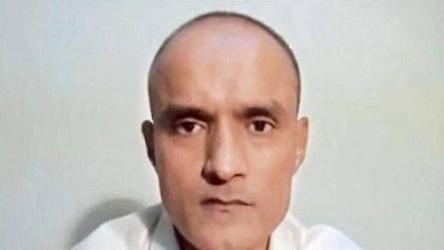Pak violated its obligations under Vienna Convention in Jadhav’s case: ICJ President
11:10AM Fri 1 Nov, 2019

The International Court of Justice (ICJ) concluded that a bilateral consular access agreement between India and Pakistan did not exclude the applicability of the Vienna Convention in the case of Kulbhushan Jadhav, ICJ president Abdulqawi Ahmed Yusuf has said.
Addressing the UN General Assembly on Wednesday while presenting ICJ’s annual report for 2018-19, Yusuf described the matter of Jadhav – currently on death row in Pakistan after being convicted of alleged involvement in espionage – as one of five contentious cases heard by the court during the period.
ICJ ruled in July that Pakistan had violated Jadhav’s rights under the Vienna Convention on Consular Relations and upheld its earlier decision that his death sentence should be held in abeyance till his trial and conviction by a military court was reviewed. Pakistan granted India consular access to the former Indian Navy officer in August.
“The Court had to address several issues regarding the interpretation and application of the Vienna Convention in the specific circumstances of the case. One of the issues that the Court had to examine was the question of whether the rights relating to consular access, set out in Article 36 of the Vienna Convention, were in any manner to be excluded in a situation where the individual concerned was suspected of carrying out acts of espionage,” Yusuf said.
ICJ noted there is no provision in the Vienna Convention containing a reference to cases of espionage, and it didn’t exclude from its scope certain categories of persons, such as those suspected of espionage.
“Another interesting legal question that the Court had to address was whether a bilateral agreement on consular access concluded between the two Parties in 2008 could be read as excluding the applicability of the Vienna Convention. The Court considered that this was not the case,” he added.
Having examined the 2008 agreement, ICJ came to the conclusion that it could not be read as denying consular access in the case of an arrest or sentence made on political or security grounds, and that it did not displace obligations under the Vienna Convention.
ICJ stressed that Pakistan “must ensure that full weight is given to the effect of the violation of the rights set forth in the Vienna Convention and guarantee that the violation and the possible prejudice caused by the violation are fully examined,” Yusuf said.
Source: Hindustan Times










